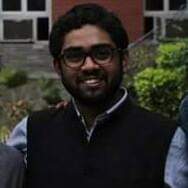History is, in many ways, like a mirror. It shows us what we are and encourages us to introspect, to explore and discover the ways in which we came to be in the said state, without necessarily providing us with direct answers and explanations. Here, allow the author to introduce his anxiety. History as the study of the past, is composite of two self-contained, but not mutually exclusive but inter-dependent terms – study and the past.
To understand the past merely as an arena for the explorers of it to dive in and retrieve gems of knowledge is a gross reduction following an honest misunderstanding of the import of history. The past part of history, or history in itself is, for the lack of a better explanation, a complicated evolutionary temporal phenomena. For the benefit of those who are uncomfortable with its eventualities, it could have unfolded in any number of ways, quite like the cat in Schrodinger’s experiment, but it does so only in a certain way. However, what is not as obvious is the study of this phenomena. The study of it is primarily a hermeneutical experience. This is not to simply highlight the possibility of the modern interpreter’s bias, but to explain that the sources themselves (particularly, literary sources, and not archaeological or numismatic evidences) are active participants in the process, and not merely as providers of resource material for interpretation but by contributing the primary line of interpretation itself to lead all subsequent interpretations, regardless of the directions that they might take.
It would not be a mistaken assumption to believe that Harisena’s eulogy of Samudragupta in the Prayaga Prashasti (4th century, C.E) or Abul Fazl’s Akbarnama (16th century, C.E), laid the groundwork and guided the later interpreters to acknowledge Samudragupta’s prowess or Akbar’s grandeur. The study of the past then involves, manufacturing of historical knowledge across periods and multiple levels- what we know and learn of as history. This is however, not a question on the powers, honest intent or authenticity of those involved in such studies or of their products. It is simply an attempt at delineating the abstrusely vague and shadowy margins between history as a process and its manufactured knowledge or interpretation as the author has imagined. Both the author and the reader should, at this point, encounter a serious dilemma. In the light of the previous discussion, what can one rely on to find authentic knowledge of the past? The author is embarrassed, and manages only the following. One would be amiss in asking questions such as the above because the validity of historical knowledge as discovered by bona-fide professionals, was never the target of the preceding discussion; it was its congruence with history itself. At the same time, it leaves a window wide open for one to reduce the process of acquiring historical knowledge to a simplistic exercise of accepting or rejecting narratives – a terrible loophole that is excessively abused.
However, a sincere appreciation of history involves accepting the idea that it is not required of history, and therefore, the consequential knowledge of it to be comfortable. Quite like the mirror, it shows us as we are – with all our glory, and all our shortcomings. And quite like the mirror, it will also reflect quite as honestly, when we gloss over the latter simply to soothe our fragile egos, while lamenting at the lessons taught, but not learnt.

